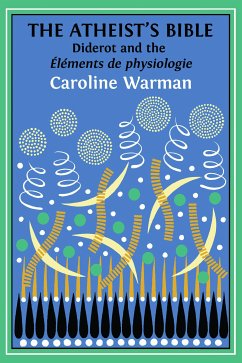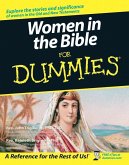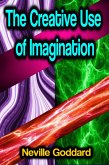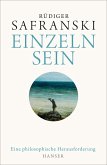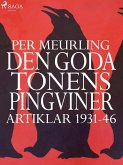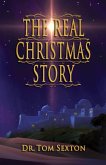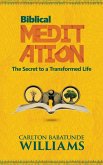‘Love is harder to explain than hunger, for a piece of fruit does not feel the desire to be eaten’: Denis Diderot’s Éléments de physiologie presents a world in flux, turning on the relationship between man, matter and mind. In this late work, Diderot delves playfully into the relationship between bodily sensation, emotion and perception, and asks his readers what it means to be human in the absence of a soul.
The Atheist’s Bible challenges prevailing scholarly views on Diderot’s Éléments, asserting its contemporary philosophical importance, and prompting its readers to inspect more closely this little-known and little-studied work. In this timely volume, Warman establishes the place of Diderot’s Éléments in the trajectory of materialist theories of nature and the mind stretching back to Epicurus and Lucretius, and explores the fascinating reasons behind scholarly neglect of this seminal work. In turn, Warman outlines the hitherto unacknowledged dissemination and reception of Diderot’s Éléments, demonstrating how Diderot’s Éléments was circulated in manuscript-form as early as the 1790s, thus showing how the text came to influence the next generations of materialist thinkers.
This book is accompanied by a digital edition of Jacques-André Naigeon’s Mémoires historiques et philosophiques sur la vie et les ouvrages de Denis Diderot (1823), a work which, Warman argues, represents the first publication of Diderot’s Éléments, long before its official publication date of 1875.
The Atheist’s Bible constitutes a major contribution to the field of Diderot studies, and will be of further interest to scholars and students of materialist natural philosophy in the Age of Enlightenment and beyond.
Hinweis: Dieser Artikel kann nur an eine deutsche Lieferadresse ausgeliefert werden.
The Atheist’s Bible challenges prevailing scholarly views on Diderot’s Éléments, asserting its contemporary philosophical importance, and prompting its readers to inspect more closely this little-known and little-studied work. In this timely volume, Warman establishes the place of Diderot’s Éléments in the trajectory of materialist theories of nature and the mind stretching back to Epicurus and Lucretius, and explores the fascinating reasons behind scholarly neglect of this seminal work. In turn, Warman outlines the hitherto unacknowledged dissemination and reception of Diderot’s Éléments, demonstrating how Diderot’s Éléments was circulated in manuscript-form as early as the 1790s, thus showing how the text came to influence the next generations of materialist thinkers.
This book is accompanied by a digital edition of Jacques-André Naigeon’s Mémoires historiques et philosophiques sur la vie et les ouvrages de Denis Diderot (1823), a work which, Warman argues, represents the first publication of Diderot’s Éléments, long before its official publication date of 1875.
The Atheist’s Bible constitutes a major contribution to the field of Diderot studies, and will be of further interest to scholars and students of materialist natural philosophy in the Age of Enlightenment and beyond.
Hinweis: Dieser Artikel kann nur an eine deutsche Lieferadresse ausgeliefert werden.

